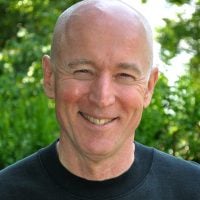(I think this should go viral. But then, I’m the father.
I won’t be satisfied until it’s spoofed on Saturday Night Live.) -Bob W.
by Joey Weisenberg
(A previous version of this article originally appeared in The Huffington Post)
Table Top Drumming is a spontaneous artform — it requires no unusual or expensive equipment, just a table, hands and some imagination.
I’ve always loved discovering the musical sounds that are possible with unplanned or arbitrary objects, from table-tops to tupperware. This video demonstrates some of the basic skills that can allow anybody to discover and play rhythms using just their hands, in a variety of settings.
When taken into a room full of singers, table-top rhythms can deeply add to the overall musical experience, as the reinforced beats quickly lend a sense of unity and positive momentum to the community’s music.
Indeed, a sensitively deployed bass thump can become the collective heartbeat of a room full of singing people!
In traditional synagogues, many Jews refrain from playing instruments on the Sabbath — both to create a sensitive and holy atmosphere, and to avoid the “work” that might be done to fix or transport instruments. In this video series, I treat this instrumental limitation as an opportunity to creatively explore the musical and spiritual possibilities that exist outside of instruments. Like the “discipline” of traditional Jewish life in general, it turns out that limits can potentially lead to a sense of inventiveness and spiritual progress that may never have been possible had we had our usual range of functioning tools in front of us.
Jewish culture has always celebrated the rhythmic cycles of the world — on the macro level. We mark the rhythms of the millenia, of passing generations, of years, of months, of weeks and of specific times of day. In biblical times, we left the land fallow every seven years, and freed the slaves every 49. If our national historical memory and Jewish rituals awaken us to the spiritual significance of the large-scale rhythms of the natural world, then our musical and rhythmic traditions can fine-tune that understanding.
If we can learn to appreciate the smaller moments of time, we may move toward reawakening our appreciation for the largest.
As we get “in tune” with the energy of rhythm and music, we also begin to more fully recognize energy of other beings around us, and ultimately to sense the divine energies present everywhere in the world. Developing a sensitivity to the majesty of the micro-moments can help us link the present moment to the eternal.
~
Joey Weisenberg is a mandolinist, guitarist, singer and percussionist based in New York City, who has performed and recorded internationally with dozens of bands in a wide variety of musical styles. Joey works as the Music Director at Brooklyn’s oldest synagogue, the Kane Street Synagogue, and is the music faculty at Yeshivat Hadar, an egalitarian yeshiva in New York. He is an artist-fellow at the 14th Street Y’s Laba program, and teaches Klezmer music as a faculty member at KlezKanada. He was recently named to “36 under 36” in The Jewish Week as one of 36 new and exciting innovators in Jewish life today. Joey visits shuls and communities around the country as a musician-in-residence, in which he teaches his popular “Spontaneous Jewish Choir” workshops.
See also:
The Magic of Amateur Singers Pouring Their Hearts Out.
~






Read 18 comments and reply